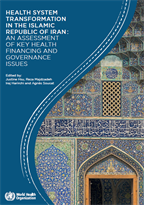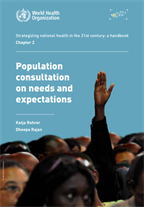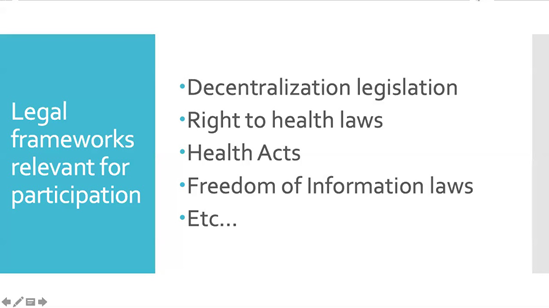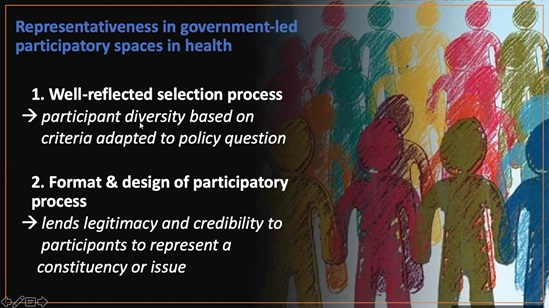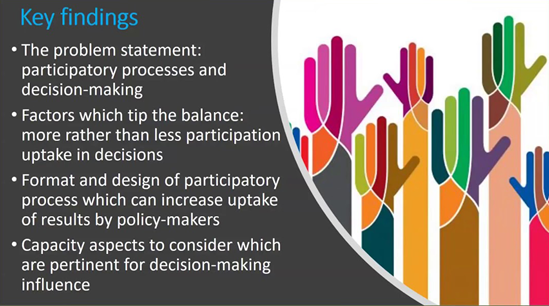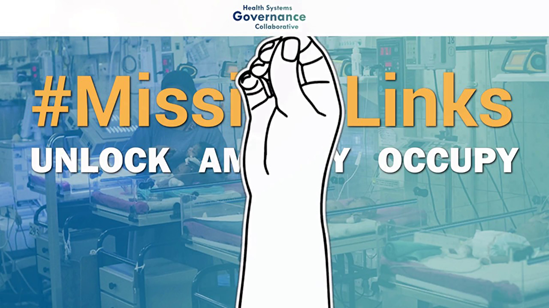Promoting participatory governance, social participation and accountability
Engaging the population, civil society and communities into national policy- and decision making
Governments increasingly recognize the need for more participatory and inclusive processes in health sector decision-making. National health policies, strategies and plans are more likely to be implemented effectively if their development and negotiation is inclusive of all relevant stakeholders. Engaging with the population, civil society and communities is also an important means to gauge expectations and opinions on health related-matters; this can contribute to responsive and people-centred health systems. Participatory governance thus entails bringing in the voice of end users of health services as well as the general population -- in essence, all those affected by health reforms.
There are a variety of mechanisms for fostering dialogue which not only empower people but also help to hold governments accountable for their commitments.
WHO provides technical support to countries in this area of work. It also contributes to the evidence base on how population engagement mechanisms can work, in which settings, and how. The Voice, agency, empowerment handbook on social participation for universal health coverage further serves as a guidance document to member states to strengthen systematic and meaningful government engagement with the population, civil society and communities by drawing from best practice examples to establish, set up and institutionalize such mechanisms in national policy, planning and review processes.


